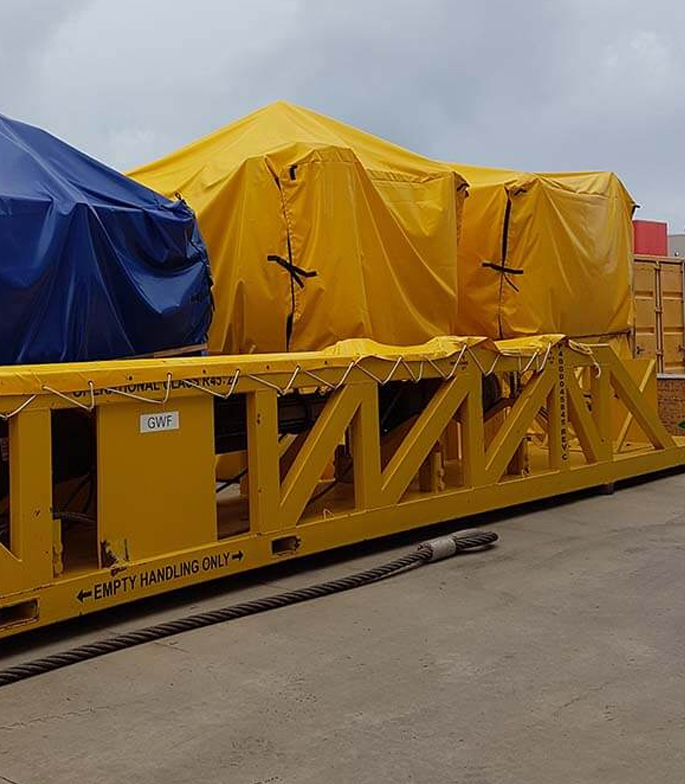Different Types of Industrial Tarp Covers and Uses
There is an array of different types of industrial tarp covers and uses for them. So, what is an industrial tarp cover? This is a broad term as there are many different types of companies that fall under this banner who utilize tarps. Those who are considered an industrial company includes:
- Logistics
- Building Construction
- Petroleum Manufacturers
- Metal Manufacturers
- Meat and Produce Manufacturers
- Chemical Manufacturing
- Electronics Manufacturers
- Pharmaceutical Industry
- Industrial Machinery and Equipment Manufacturers
Types of industrial covers these companies may utilize include:
![]()
- Roll tarps for trailers
- Flat tarps for covering openings in both roofs and walls in buildings under construction
- Side blinds or curtains for workshops or painting structures
- Shipping container covers
- Enclosed tarp structure to aid in containment of chemical or biohazard materials
- Roof tarps and walls to help filter through sunlight for greenhouse setups
- Form-fitted or flat tarps to help keep machinery out of the weather while left outside
Tarps tend to just appear on industrial sites. Not many people consider what goes into them or their many uses; they just know there will always be one on hand for exactly what they are needing right there and then.
For those in construction, there are plenty of uses for the same tarp. When knocking out old walls or putting up a new roof, tarps come in handy in a multitude of ways. Have a huge opening leftover in an incomplete wall at the end of the day and do not want anything to get in overnight? Draw up a large tarp to cover the opening and help create a false wall to keep the night weather out. This works for both walls and roofs so long as the tie-downs have been done strong enough to not get caught by any wind and lift off.
Tarps can also be utilized while using drop saws or even painting gyprock. Lay a couple of tarps beneath your station and get to work. The tarp will help gather up any offcuts, sawdust, or paint drips whilst also protecting the floors beneath from damage.
And if all else fails, you can just as easily throw a tarp over any used machinery and or materials that are not needed at that moment. No point losing money on damaged goods left out in the weather if you are not using them right there and then. Cover them over and help protect them while left outside. It is even better if your machinery already has a fitted tarp to suit its shape. That just gives you a higher guarantee that that machine will be safely left out in the weather.
Industrial tarps have a great many forms and use though are easy to spot on a construction site over a meat and producer manufacturing site. Tarps may not always be easily identified on a site but you can almost guarantee they will always be on hand when you need one, no matter the requirements.




William Snellex (Base Fabrication)